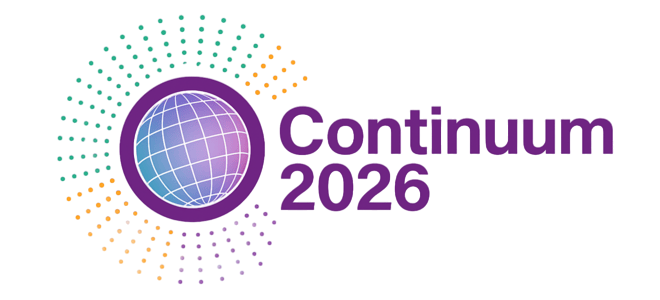Background
Global efforts are focused on health integration and the move towards people-centered, primary care encompassing the treatment and prevention of multiple diseases, under the umbrella of universal health coverage. Integration of HIV services and other health services can improve health and health systems outcomes. Patient perspectives and experiences on integrated care for HIV and comorbidities have been reported as mostly positive and integrated services can save resources and allow for a more holistic approach to healthcare. The integration of HIV services with sexual and reproductive health services has the potential to increase the efficiency and effectiveness of care providers and health systems to better meet the needs of patients seeking these services. Service integration can be a valuable strategy to boost the sustainability of the HIV response and contribute to the goal of ending the HIV epidemic (EHE) in the U.S. by 2030. CDC has called for community engagement and the integration of programs at the local level to address the syndemic of HIV, STIs, viral hepatitis, substance use and mental health disorders. It is essential to go beyond a biomedical approach and to fully integrate social determinants of health into the EHE response.
Program
Promoting Integrated Care for People Living with HIV positions integrated care as a key component of delivering quality HIV care and improving patient outcomes, notably because people living with HIV are at increased risk for mental and psychosocial conditions and require care for HIV and associated medical conditions. The activity is in alignment with NHAS goal 2.3 of providing integrative HIV services for HIV-associated comorbidities, coinfections, and complications; 2.4 of increasing the capacity of the health care workforce to diagnose and provide holistic care and treatment for people living with HIV; 3.5 of training and expanding a diverse HIV workforce; and 3.6 of advancing HIV-related communication to achieve improved messaging towards communities affected by HIV. The information is delivered across two modules:
- The first module addresses how inflammation contributes to earlier onset and increased frequency of cardiovascular disease, cancers, venous thromboembolism, type 2 diabetes, chronic obstructive airway disease, renal disease, bacterial pneumonia, cognitive dysfunction, depression, and frailty.
- The second module addresses strategies for delivering whole-person care to people living with HIV within integrative health services.
Accreditation
Planning Committee
This educational activity was developed by a course director, activity manager, and activity assistant:
Course Director: Christopher Duncombe, MD, AM (University of Washington, Seattle, WA, USA)
Faculty: Christopher Duncombe, MD, AM (University of Washington, Seattle, WA, USA)
Activity Manager: Jonathon Hess, MPA, LLM (International Association of Providers of AIDS Care, Washington, DC, USA)
Activity Assistant: Cassandra Moore, MPH (International Association of Providers of AIDS Care, Washington, DC, USA)
Providership
This CME activity is provided by Albert Einstein College of Medicine-Montefiore Medical Center in joint providership with the International Association of Providers of AIDS Care (IAPAC).
Commercial Support Acknowledgement
Educational grant from Merck & Co.
Target Audience
This activity has been designed to meet the educational needs of HIV care providers and other healthcare professionals providing HIV care and treatment such as physicians, nurse practitioners, and physician assistants.
Learning Objectives
- Explain the relationship between HIV, inflammation, and comorbidities.
- Describe how integration of HIV and other services can improve individual and health systems outcomes.
- Explain the importance of integrating the social determinants of health into their practices.
- List evidence-based best practices on health systems integration.
Accreditation Statement
In support of improving patient care, this activity has been planned and implemented by Albert Einstein College of Medicine-Montefiore Medical Center and the International Association of Providers of AIDS Care (IAPAC). Albert Einstein College of Medicine-Montefiore Medical Center is jointly accredited by the Accreditation Council for Continuing Medical Education (ACCME), the Accreditation Council for Pharmacy Education (ACPE), and the American Nurses Credentialing Center (ANCC), to provide continuing education for the healthcare team.
Credit Designation Statements
Physicians Albert Einstein College of Medicine-Montefiore Medical Center designates this live activity for a maximum of 2.5 AMA PRA Category 1 Credits™. Physicians should claim only the credit commensurate with the extent of their participation in the activity.
Financial Relationships
Planners, faculty members and peer reviewers have no relevant financial relationships with ACCME-defined ineligible companies during the past 24 months.
The “Policy on Identification, Mitigation and Disclosure of Relevant Financial Relationships” of Albert Einstein College of Medicine-Montefiore Medical Center requires that any individual in control of content, including faculty, participating in CME/CE activities disclose to the audience all relevant financial relationships with ineligible companies* in the last 24 months.
Any individual in control of content who refuses to disclose, or their disclosed relationships prove to create a conflict of interest will be recused. Individuals with the absence of relevant financial relationships with ineligible companies will be disclosed to the audience.
All financial relationships of individuals in a position to control the content of this CME/CE activity has been identified and mitigated prior to this educational activity.
*The ACCME defines an ineligible company as those whose primary business is producing, marketing, selling, re-selling, or distributing healthcare products used by or on patients.
Course Content
This activity’s two modules are covered in the course content link below, which should be fully reviewed prior to completing the knowledge assessment. This course will be accessible for credit from December 13, 2023 through December 31, 2024. If you encounter any issues, please contact Jonathon Hess, MPA, LLM, IAPAC Senior Director of Education, at jhess@iapac.org.
Knowledge Assessment
This activity has a knowledge assessment. The assessment requires completing 20 multiple choice questions covering topics covered in the activity’s two modules and must be completed following the activity’s completion to claim 2.5 AMA PRA Category 1 Credits™.





